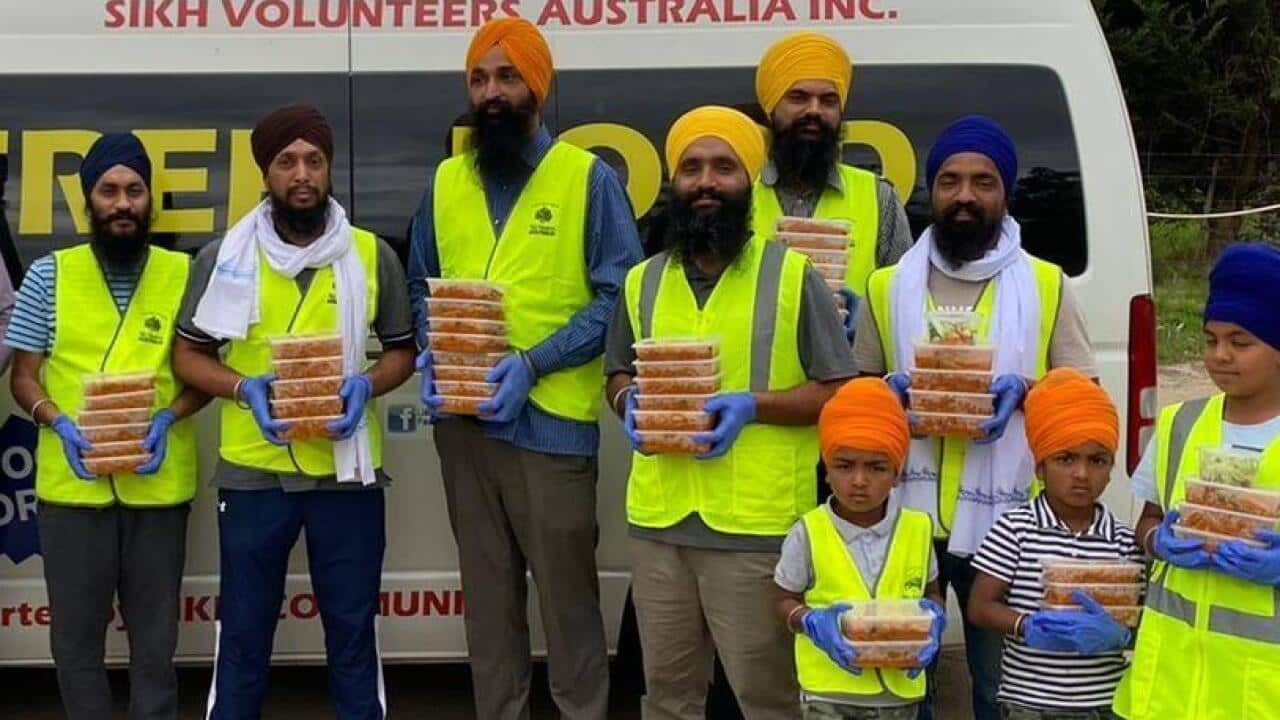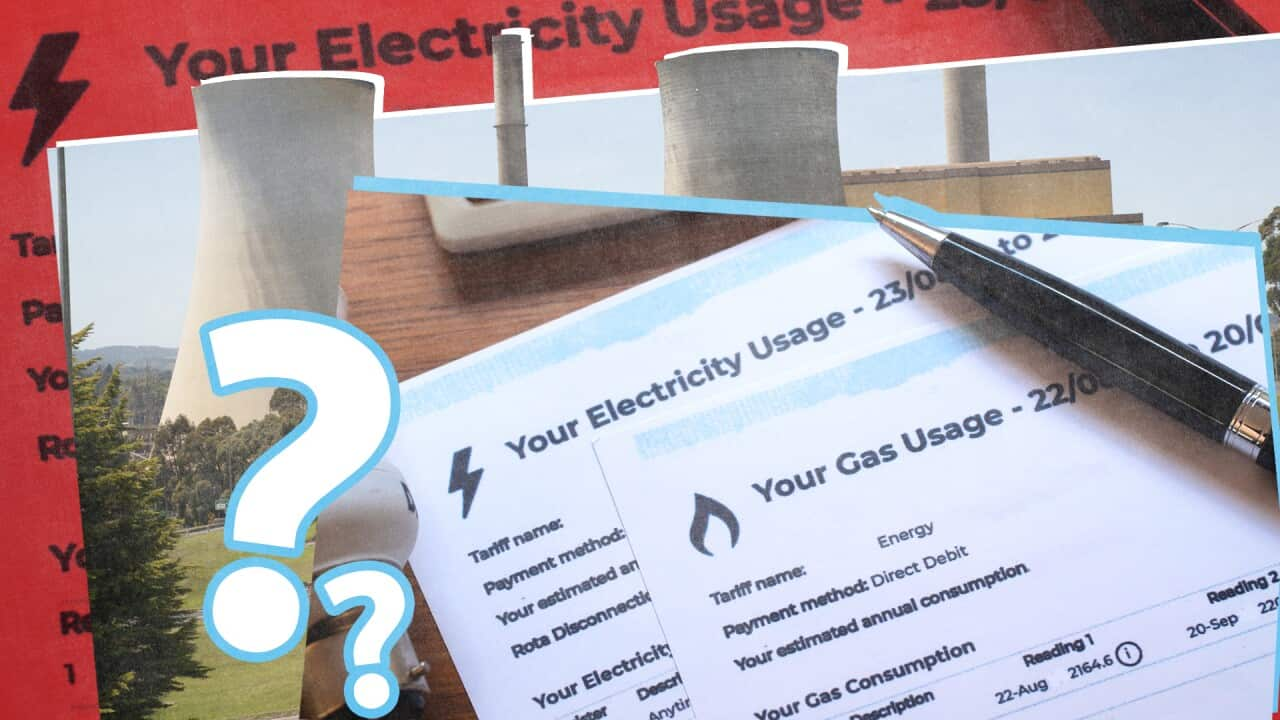Key Points
- The cost of living in Australia is soaring.
- Charities say they're finding it harder than ever to give disadvantaged groups the support they need.
Australian not-for-profit organisations say cost of living pressures are impacting their ability to meet the needs of disadvantaged communities.
Sikh Volunteers Australia is among those finding it harder to serve the community because it is being hit by cost of living pressures.
Part of the Melbourne-based, non-profit organisation's work involves delivering free vegetarian meals to those in need.
It also provides support to communities impacted by natural disasters, including making earlier this year.
Chief executive of Sikh Volunteers Australia Jaswinder Singh said during the height of the pandemic, the organisation cooked and delivered around 1,500 to 1,800 meals in a single day.
He said while demand is much lower than that right now, the cost of providing fresh vegetarian meals is now "above the roof".
“Not long ago, we could get a 20-kilogram bag of onions for somewhere between $12 and $15. The cost of those bags are now sitting over $25 or $28," Mr Singh told SBS News.
"Many of the (other) ingredients which we use in our meals are from overseas, and the delays in the shipments, the non-availability of these ingredients are impacting us, the cost is impacting us."
"We can't compromise on these things, we have to have them."
Mr Singh said the rising cost of living is also affecting the availability of the organisation's 500-strong volunteer team.
"Everyone is trying to work more (paid) hours, which means they have less time out to do any sort of volunteer work," he said.
Mr Singh said the impact of that could mean further reducing the service area the organisation covers or having to go through the lengthy process of recruiting, training, and managing new volunteers.
"Considering the situation now, probably, we need to have at least 200 to 300 more volunteers on board," he said.
"It's a massive job, and every time we go out on these things, we are putting less time for the service, which we have to focus on."
Sikh Volunteers Australia is about to begin construction on a modern, purpose-built kitchen, which will be ready for operation towards the end of this year or the start of next.
"It can produce easily, approximately 10,000 meals a day, with only three to five volunteers, and that will enable the organisation to serve a bigger landscape, a bigger part of the community," Mr Singh said.
"But if these things keep on continuing - less volunteers, a lot more costs - probably the kitchen facility wouldn't be able to serve to its full capacity."
The Asylum Seeker Resource Centre (ASRC) in Melbourne provides free, culturally-appropriate groceries to around 1,000 people through its Foodbank, along with other support, advocacy, and empowerment services.
But ASRC chief executive Kon Karapanagiotidis said the rising cost of living, combined with the "optimism of a change of government" has led to fewer people donating to the organisation, putting it under increased pressure.
"Things are worse than ever before, but people are giving less than they had the last couple of years because they think we're kind of through the worst of it," he told SBS News.
"Food insecurity is growing; we're also paying the rent at the moment for 500 people a night.
"Those numbers are three times what we used to do, so we're feeling it more than ever."
Mr Karapanagiotidis said the ASRC is $120,000 behind where it was in donations this time last year.
"If that trend keeps happening, that could spill into hundreds and hundreds of thousands of dollars of deficit that we can't actually afford," he said.

ASRC chief executive Kon Karapanagiotidis says demand for the charity's food relief services doubled during the pandemic and is unlikely to ease. Source: Supplied
He said that's unlikely to change any time soon given asylum seekers and refugees on temporary visas are "objectively, the financially most impoverished group in the country".
"A lot of Australians are feeling the pain now of cost of living, but many Australians financially came out of this pandemic better off, with more savings, paid down more of their mortgage," Mr Karapanagiotidis said.
"But people seeking asylum only came out of this worse.
"They are left out of so much of the safety net, economic base, and pathways to education and employment, so they're feeling the pinch more."
Federal Treasurer Jim Chalmers said a cost of living relief package would be included in the new government's first budget in October.
"The budget will take into consideration all of the various pressures that Australians are facing at the time," he said.
But Mr Chalmers warned extra spending will be limited.
"The best thing that we can do as a government is to make sure that we grow the economy without adding these inflationary pressures, that we get great wages moving again, that we actually have something to show for this trillion dollars in debt that our predecessors have racked up," he said.
"What really matters here, when it comes to the level of government spending in the context of high and rising inflation, is not just the magnitude of government spending but the quality of that spending as well."
Mr Karapanagiotidis said a lot of critical issues "could take months to years" to solve, depending on how willing the new government is about fixing these problems.
He said in the meantime, he wants Australians to recognise that making donations to charities "should still be on that same essential list as your bread and milk".
"My worry is people think it's all over. And in reality, nothing's changed for the people we work with," Mr Karapanagiotidis said.
"We hope for those who can, that they remember that there are always people less fortunate and worse off than them."












